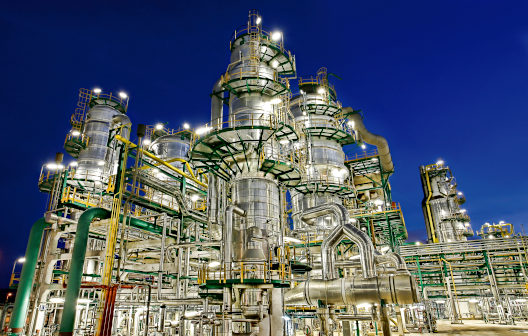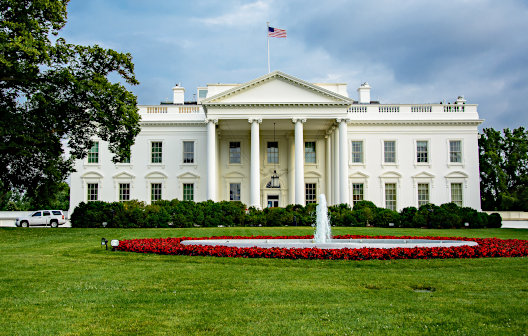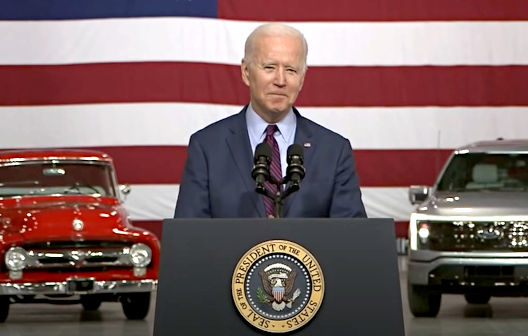Image Credit: Polesie (Pexels)
The Sustainable Aviation Fuel Grand Challenge – The Plan and The Participants
The U.S. Department of Energy (DOE), U.S. Department of Transportation (DOT), and U.S. Department of Agriculture (USDA) are launching a government-wide Sustainable Aviation Fuel Grand Challenge (Grand Fuel Challenge). The purpose is to reduce the cost, enhance sustainability, and expand the use and production of sustainable aviation fuel (SAF). The challenge is to achieve a minimum of 50% in lifecycle greenhouse gases (GHG) over conventional aviation fuel. And to supply enough aviation fuel to meet 100% of all aviation fuel demand by 2050.
The Grand Challenge and increased production of SAF is intended to play a critical role in broader U.S. activity to reduce the aviation sector’s emissions consistent with net-zero emission for the economy. And for aviation to be fully decarbonized by 2050.
Wider Purpose
The activities driven by the Grand Challenge are intended to be an investment in America that reduces aviation’s environmental impact and supports energy independence while creating jobs in agriculture, forestry, infrastructure, research and development, and other production areas.
Who is Involved?
In a White House “Fact Sheet” released on September 9, many corporate citizens were named in addition to the above federal and public sector departments. They have specifically committed, pledged, or announced they’d meet a 2030 goal of reducing current carbon emissions by half by 2030 and continue thereafter to advance sustainability across their operations.
- United Airlines (UAL) announced a new goal to reduce its carbon emissions intensity 50% , compared to 2019, by 2035. United Airlines and Honeywell (HON) also announced a new multi-million-dollar investment in Alder Fuels to produce carbon-negative sustainable aviation fuel at scale. Under the agreement, Honeywell and Alder Fuels will jointly commercialize the technology that could demonstrate greater than 100% lifecycle GHG emissions reductions for aviation fuel. United Airlines has committed to purchasing 1.5 billion gallons of this new SAF over the next 20 years.
- Delta Airlines (DAL) is committed to replacing 10% of its current jet fuel use with SAFs by 2030 and has agreements with three SAF producers, Neste, Gevo, and Northwest Advanced Bio-Fuels. Delta also recently announced a new SAF emissions pilot project with Chevron and Google to increase industry SAF transparency.
- American Airlines (AAL) plans to procure 10 million gallons of SAF from Prometheus Fuels by 2025 through a process that produces fuels from captured CO2 and renewable electricity.
- Alaska Airlines (ALK) offers purchases of SAF to offset corporate travel on key routes and has agreements in place with SAF producers including SkyNRG Americas and Neste.
- Southwest Airlines (LUV) is partnering with the National Renewable Energy Lab to develop and commercialize SAF.
- JetBlue (JBLU) is committed to electric and hydrogen aircraft development in partnership with Joby Aviation and Universal Hydrogen.
In the category of air freight, the Cargo Airline Association (CAA) members are purchasing new, fuel-efficient aircraft, electrifying ground equipment, promoting and using SAF, and developing the use of electric short-haul cargo aircraft.
- FedEx (FDX) is conserving fuel and improving the efficiency of aircraft through their FedEx Fuel Sense program while continuing to invest in the development of SAF.
- Atlas Air (AAWW) is driving operating efficiencies with its FuelWise program, which works in conjunction with flight planning software to optimize speeds, altitudes, routes, and flight path segments.
- Amazon AIR (AMZN) is investing in electro-fuels, hydrogen fuel cell aircraft, and electric vertical take-off and landing aircraft development. Amazon Air has purchased 6 million gallons of SAF
- DHL Express (DPSGY) has pledged to use 30% SAF by 2030 and is partnering with other stakeholders on a demonstration project in Northern Kentucky to produce and supply SAF to the region.
- UPS (UPS) is investing in efficient, electric vertical take-off and landing aircrafts for moving smaller loads.
Fuel Providers
Current levels of domestic SAF production are approximately 4.5 million gallons per year, with rapid growth in demand and production expected. Scaling up domestic SAF production will involve a wide variety of different feedstocks and pathways, and the industry will continue to explore a diverse set of options, including the potential to convert biofuels such as ethanol into jet fuel. To help achieve the 2030 goals, several fuel providers have announced domestic SAF production targets.
- Gevo (GEVO) plans to produce over 150 million gallons of SAF per year by 2025 from crop residue to ethanol by Alcohol-to-jet processing.
- LanzaJet (owned by Royal Dutch Shell) plans to produce 1 billion gallons of SAF per year 2030 from ethanol derived from waste sources by Alcohol-to-Jet processing.
- World Energy (XWES) plans to produce 150 million gallons of SAF per year by 2024 from fats, oils, and greases by hydroprocessing.
- Fulcrum plans to produce more than 33 million gallons of SAF per year by 2022 from MSW processed by Fischer-Tropsch processing.
- Velocys plans to produce 300 million gallons of blended SAF per year from waste woody biomass and MSW processed by the Fischer-Tropsch process.
- New announcements of potential SAF production scale-up include those from BP, Virent, Honeywell, Shell, Neste, Marquis, Green Plains Inc., ADM, Prometheus, Aemetis, and members of the Renewable Fuels Association and members of Growth Energy.
Airports Operational Efficiency Improvements
Many airports are committed to sustainable operations. The members of Airports Council International-North America (ACI-NA) have been commited to reach net-zero carbon emissions by 2050 since May.
SAF is already commercially available and regularly used on passenger flights at Los Angeles, CA (LAX) and San Francisco, CA (SFO); and several airports are pursuing the infrastructure required to enable SAF deliveries in the future. Many airports are pursuing operational efficiency and emissions reduction efforts, they include the following.
- Indianapolis, IN has one of the largest solar farms on any airport property in the world, in addition to being a leader in electric airport shuttle bus fleets.
- Philadelphia, PA has established comprehensive air quality initiatives and launched a series of energy efficiency and benchmarking initiatives that include terminal facilities and ground support equipment.
- Salt Lake City, UT generates 7 percent of its energy from renewable sources, including on-site solar.
- San Diego, CA (SAN) is the first U.S. airport to establish a regular sustainability report in order to measure progress on a range of environmental goals.
- Dallas-Fort Worth, TX has set a goal of achieving Net Zero Carbon by 2030.
- A number of U.S. airports have individual road maps to achieve net-zero emissions and are actively participating in the Airport Carbon Accreditation certification program.
Take-Away
As part of the U.S. government’s commitment to substantially reduce overall carbon emissions by promoting SAF and greener airports, there is collaboration of the DOT, DOE, and USDA. The aviation industry is also getting on board with firm commitments and promises.
Some of the companies involved are large. Many of these large companies will benefit from the groundwork already done by smaller companies in the biofuels space as well as other alternative fuels. As always, where there is change, there is opportunity. Many high potential opportunities exist for small and microcap alternative fuel companies. You can explore many of these opportunities through the information provided here on Channelchek.
Suggested Reading:
 Finding Replacements for Petroleum-Based Chemicals
|
 Biofuels, Biodiversity, and Climate Change
|
 Is Biden Tightening the Reins on Large Companies
|
 The Future of Electric Vehicles
|
Sources:
https://www.energy.gov/sites/default/files/2021-09/S1-Signed-SAF-MOU-9-08-21.pdf
Stay up to date. Follow us:

|
